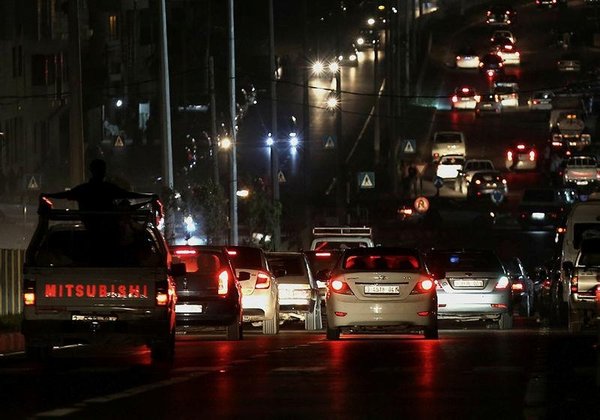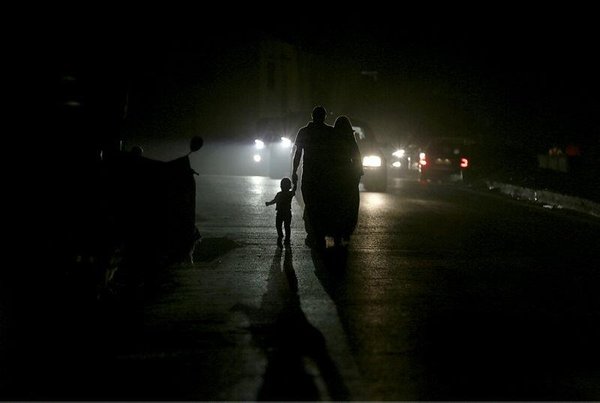Israel has reduced the electricity supply to the blockaded Gaza strip from 120 to 55 megawatts, a reduction of more than 45 percent, Gaza's energy authority said Thursday.
"Ongoing power reductions by Israel are adding further burdens to Gaza's already suffering population, especially in light of soaring summer temperatures," the authority said in a statement.
It went on to point out that the embattled coastal enclave was now receiving a total of only 140 megawatts of electricity -- from Egypt and Israel and from Gaza's only functioning power plant -- out of 500 megawatts needed to meet the needs of the strip's roughly 2 million inhabitants.

Palestinian cars light the streets during a power outage in Gaza City, Gaza Strip, 28 June 2017. Most Palestinian in Gaza Strip use batteries, generators or candles to light their homes. Residents of Gaza, home to 1.8 million people, experience some 20 of electricity outage per day. (EPA)
Israel first began reducing the electricity supply to Gaza on June 19 -- a move it says came at the request of the Ramallah-based Palestinian Authority (PA).
In April, Palestinian President Mahmoud Abbas, who heads the PA, vowed to take "unprecedented steps" to pressure Palestinian resistance movement Hamas -- which governs Gaza -- into relinquishing control of the territory.

A Palestinian family walks in the street of Deir al-Balah refugee camp during a power outage in the central Gaza Strip, 29 June 2017. Most Palestinians in the Gaza Strip use batteries, generators or candles to light their homes. (EPA)
Since Hamas wrested control of Gaza in 2007, the coastal strip has groaned under a crippling Israeli-Egyptian embargo that has deprived its inhabitants of many basic commodities, including food, fuel and medicine.